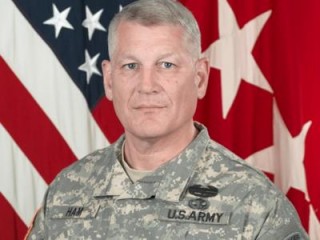– US Trained Mali Rebels, Commander Visited US (Veterans Today, Jan 29, 2013):
This week, General Ham admitted US complicity in training the rebel groups in Mali. He also suggested changes which would improve America’s policy making skills and institute prohibitions on wild military adventurism. He didn’t call it that but this is what he meant.
There are several African Studies centers in the US. One at Michigan State University, where I was an active participant for some years, and the other at Howard University.
I traveled to the region last year for security consultations and have exchanged views with leaders of several nations within the region along with private embedded “capabilities” and “atmospherics.”
Though Ham represents a serious upgrade in talent and analysis, he also shows signs of being chained to Bush era rhetoric and will find it a challenge to separate himself completely from the egregious sins of the past.
The mission of both is to assure that American efforts in Africa are centered on broad understandings of political and social reality, not simple greed for resources or short term political goals.
During the Bush administration, all rationality was abandoned in US policy toward Africa.
While at the Ralph Bunche Center, General Ham stated:
“We have had a US training effort with the Malian armed forces for some years. Some of that has occurred in Mali and some of that was Malian officers coming to the US for training including Captain Amadou Sanogo, who led the military coup which overthrew the constitutionally-elected government.
This is worrisome for us. So we looked at that and we asked ourselves: first, did we miss the signs this was happening? And was there anything we did in our training that could have been done differently and have caused a different outcome?”
We probably didn’t spend the requisite time focusing on values, ethics and military ethos.
When you put on the uniform of your nation, then you accept the responsibility to defend and protect that nation, to abide by the legitimate civilian authority that has been established.”
Ham’s follow up statements, however, support the wider US involvement in the region, particularly those that have led to the establishment of drone bases in Niger.
What is not addressed is the lack of human intelligence resources within Africa, within the range of America’s drones, that would prevent the large scale “collateral damage” nightmares that have been evidence in Afghanistan, Pakistan and Yemen.
Though the US has improved intelligence resources “on the ground” throughout the region, little is being done as far as policy analysis, trading the broad War on Terror fiasco for the current “feeding frenzy” several nations are engaging in, a war for Africa’s natural resources.
Ham goes further, sticking to “policy” but missing some real lessons:
“First is the restoration of the constitutional government in Bamako as a necessary precondition for a satisfactory solution. Second is addressing the concerns of a largely disaffected population in the northern portion of the country. Third is the existence in northern Mali, now of al-Qaeda and other terrorist and extremist organizations that undermine the rule of law. They have eliminated the rule of law – that has to be dealt with.”
Territorial integrity of Mali is non-negotiable. There can be no discussion of a separatist state or something similar. Realistically, we would all like to see the elimination of al-Qaeda and other terrorist and insurgent groups from northern Mali. Probably the best you can get is containment and disruption, so that al-Qaeda is no longer able to control territory there as they do today.
We see this clearly from the US government side, in fact and in perception, as an African-led endeavor done at the request of the Malian government and I think that’s well under way now.”
In the end, US policy in this region has been one of reaction after the fact, far too subject to our dependence on French resources. With the factions within the French government and military either influenced by commercial or expansionist political goals, an American policy in support, even with African Union troops “on the ground,” is still unlikely to bring about an outcome General Ham favors.
Viewing Mali as a “domino” in a widespread and systematic destabilization effort aimed to create a generation of warfare is more realistic.
